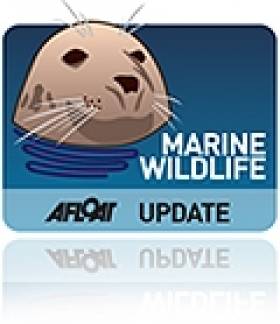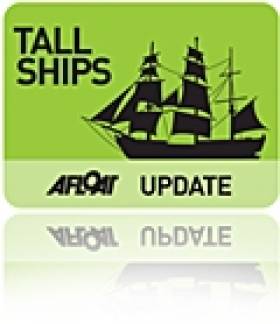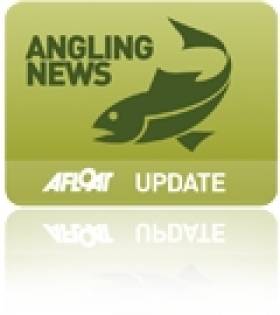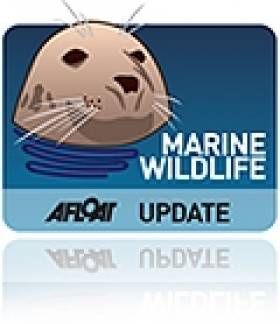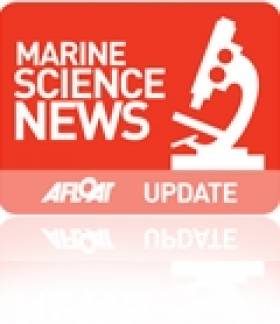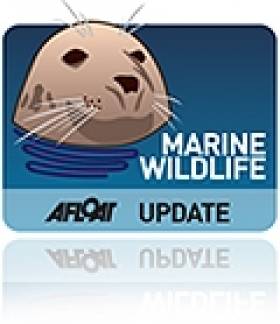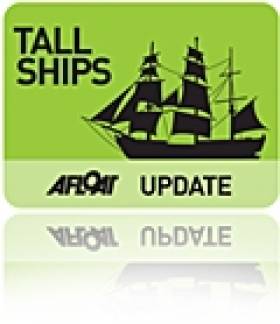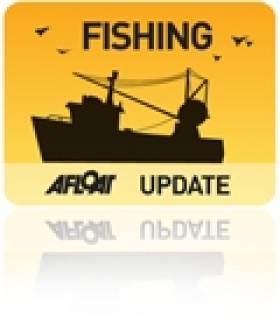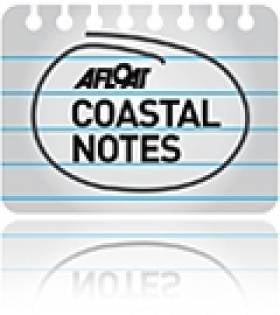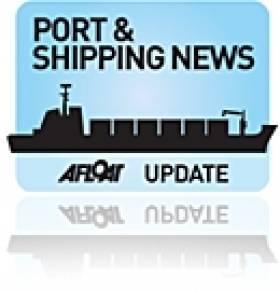Displaying items by tag: conservation
Groups Concerned Over UK Govt Plans for Marine Conservation Zones
#MARINE WILDLIFE - Conservationists in the UK have voiced their concern that Westminster will enact fewer than a quarter of the proposed Marine Conservation Zones in British waters.
The Press Association reports that some 127 such zones - including parts of the Irish Sea - have been earmarked by regional conservation groups as areas requiring special environmental protection.
All 127 proposals were reviewed by an independent panel of scientists and government committees before they were to go on public consultation.
But it is now feared that a mere 23 of the total will get the go-ahead, due to a perceived lack of evidence to support the case for the rest.
"To only designate 23 marine conservation zones is equivalent to switching off the life support for our seas," commented Joan Edwards of the Wildlife Trusts.
The Press Association has more on the story HERE.
Celtic Mist Finally in Dry Dock for Refitting
#TALL SHIPS - RTÉ News reports that the Celtic Mist is finally in dry dock for refurbishment to begin its new life as a maritime research vessel.
As previously reported on Afloat.ie, the 52-foot yacht - which was gifted by the Haughey family to the Irish Whale and Dolphin Group (IWDG) to assist in its marine wildlife conservation work - relocated to its new berth at Kilrush, Co Clare in July.
This followed its last jaunt at sea earlier this year, completing a leg of the Tall Ships Races from Waterford to Greenock.
The cost of refurbishing the yacht for research and training purposes is expected to top €60,000, with an annual running cost of some €20,000, for which the IWDG is seeking ongoing financial assistance.
The group aims to get the Celtic Mist back at sea before next summer.
First Meeting of National Inland Fisheries Forum
Seasonality, climate change and the environment were the hot topics discussed at the inaugural meeting of the National Inland Fisheries Forum in Athlone last Thursday.
Inland Fisheries Ireland chief executive Dr Ciaran Byrne hosted the forum, whose 60 voluntary members - drawn from various stakeholder groups - are is set to meet twice annually.
The day saw TV personality and keen angler Derek Davis installed as chairman of the forum, following his appointment by the Minister for Natural Resources.
Davis noted that the forum "can influence policies for the protection, management, development and conservation of this valuable resource now and for the generations to come."
In his own address to the forum, Dr Ciaran Byrne highlighted the members' collective experience in fisheries management on Ireland's inland waterways.
“A number of you have served as members of the central and regional fisheries boards, some for over 20 years," he said. "As members of the forum you have the opportunity to discuss and advise on the future of inland fisheries in Ireland. IFI looks forward to receiving your considered views on the various issues.”
In a message to the meeting, Minister Pat Rabbitte stated his belief "that the forum will provide a meaningful channel of communication between the stakeholders and management of the inland fisheries resource".
Celtic Mist Will Track Elusive Blue Whale
The infamous Celtic Mist is set to be used to track one of the most elusive marine animals in Irish waters.
The Irish Examiner reports that one of the first duties of the yacht under its new ownership by the Irish Whale and Dolphin Group (IWDG) will be to track down the blue whale, the last of which was spotted off the Irish coast in 2009.
"We’ve made two sightings of the blue whale on the shelf edge but with the Celtic Mist we will be able to go out there for a few weeks and sit there and wait for them," said the IWDG's Dr Simon Berrow.
"Hopefully we will find some more when we bring the Celtic Mist out there. They are very rare."
The blue whale is regarded as the largest animal to have ever lived on earth. They also have an average lifespan of well over 100 years.
As previously reported by Afloat.ie, Celtic Mist was gifted by the Haughey family to the IWDG earlier this year to assist in its marine conservation work.
The yacht competed in a leg of the 2011 Tall Ships Race from Waterford to Scotland before moving to its new home in Co Clare, where it will be refitted for its new life as a research vessel.
Celtic Mist Needs Funds for Refit
The Irish Whale and Dolphin Group (IWDG) has published a notice for its plans to refit the yacht Celtic Mist as a research vessel.
As previously reported on Afloat.ie, Celtic Mist was gifted to the IWDG by the Haughey family to help the group in its marine wildlife conservation work.
Under its new ownership, it completed a leg of this year's Tall Ships Race and found a new home at a sponsored berth at Kilrush, Co Clare.
Currently the IWDG is applying to the Clare Local Development Company for LEADER funding towards the refit.
IWDG co-ordinator Dr Simon Berrow said: "We are eligible for 75% funding but need to provide 25% funding ourselves. We estimate this to be in the region of €12,500.
"Celtic Mist has already cost IWDG around €5,000-7,500 so we must start a fundraising campaign to cover these and other costs."
Anyone who wishes to contribute to the fundraising campaign can contact the IWDG at [email protected]. All donations above €250 are tax deductable.
Protection Needed for Horse Mussels in Strangford Lough
A new study from Queen's University Belfast has revealed the extent of damage to horse mussel reefs in Strangford Lough, the Bray People reports.
The report highlighted a lack of action on the part of the NI government departments responsible for the lough, which is designated as a Special Conservation Area and a Marine Nature Reserve.
According to BBC News, previous studies in the late 1990s showed that many of the mussels were dead, and urged regulatory action to protect the remainer that did not come to pass until earlier this year, when two non-disturbance zones were declared to reduce pot fishing in the reef areas.
On top of the continued ban on mobile fishing gear, the new study recommends "total protection" in areas of the lough where fishing activity is affecting the recovery of horse mussel reefs, and notes that "signs of natural recovery might be expected within 20 years... provided there is no further disturbance".
Celtic Mist Berths at New Home in Co Clare
The Celtic Mist sailed to its new berth at Kilrush in Co Clare on Saturday to begin its new life as a marine research vessel.
As previously reported on Afloat.ie, the 52-foot yacht was gifted by the Haughey family to the Irish Whale and Dolphin Group (IWDG) to assist in its conservation work.
It also recently completed a leg of the Tall Ships Races from Waterford to Greenock in western Scotland - the only Irish entry to compete in the race this year.
According to Irish Weather Online, the yacht will be used for research and surveying of whales, dolphins and other marine wildlife in Ireland, as well as training people to carry out marine surveys by acoustic monitoring.
Irish Weather Online also has images of the Celtic Mist arriving at its new home HERE.
Decision on Castlemaine Fishing 'A Matter of Urgency'
A decision on the reopening of Castlemaine Harbour to wild salmon fishing will be made "as a matter of urgency", says the Department of Communications, Energy and Natural Resources.
The Kerryman reports that the department has confirmed 25 submissions were received during a 30-day consultation after plans were announced to reopen the harbour to commercial fishing in May.
Local fishermen have welcomed the move, though angling and conservation groups have voiced their opposition, with Guy Buxton of the Kerry Anglers' Federation saying that the reopening "could not be justified" on any grounds.
Schoolkids Urge Stormont to Save NI's Coastline
Hundreds of schoolchildren protested at Stormont last week to call for new laws to protect Northern Ireland's coastal waters, the Belfast Telegraph reports.
The group handed a petition with 4,000 signatures to Environment Minister Alex Attwood urging the introduction of a Marine Bill which would provide special marine conservation zones and restrict harmful maritime activities.
At present, Northern Ireland is the only part of the UK with no legal safeguards for the protection of its coastline.
The Northern Ireland Marine Task Force, which is heading the campaign, says "over-reaching legislation" is needed to preserve the North's marine wildlife and plantlife habitats.
The Belfast Telegraph has more in the story HERE.
Expansion Is The Only Way Says Dublin Port Chief
Trade at Dublin Port is set to more than double over the next 30 years, according to its chief executive Eamonn O'Reilly.
In an interview with The Irish Times last week, O'Reilly elaborated on the new 'master plan' for the port, which is based on an estimated trade growth to 60 million tonnes (or 2.5% annually) by 2040.
“Last year’s growth [of 6.1%] suggests to me that we need to get our planning caps on and get a solid and robust master plan in place,” said O’Reilly.
The master plan, according to the Dubin Port chief, will require expansion of the existing port by reclaiming up to 40 hectares, as well as a greater integration with bordering areas.
Previous attempts to expand have faced much opposition from conservation groups and local residents for a number of years.
O’Reilly stressed that the local community will be engaged on the issues involved before Dublin Port produces a final proposal at the end of the year.
But he also insisted that "there’s no project [that hee knows of] for port expansion that doesn’t involve reclamation", despite proposals to establish a new port at Bremore.
Read more of the Irish Times interview with Eamonn O'Reilly HERE.


























